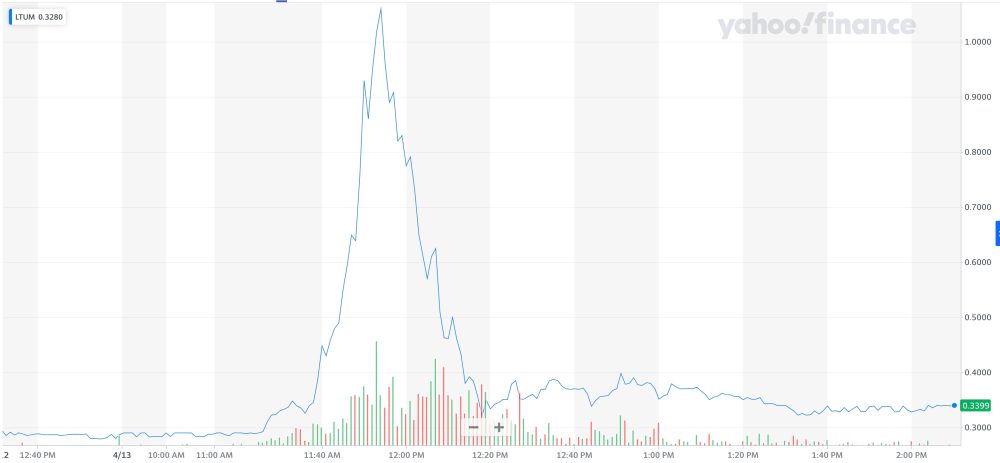Tesla fans have propagated clearly fake news of the automaker supposedly acquiring a small lithium mining company that sent its stock up over 250%.
Over the last few years, Tesla CEO Elon Musk has used his popular Twitter account to promote several accounts that have become influential in the Tesla community.
As we previously reported, several of these accounts have been known to spread misinformation in the past.
Now it’s becoming dangerous to a certain degree with a new example today.
A newswire posted what they claim was a confirmation that Tesla is acquiring Lithium Corporation, a junior mining firm based in Nevada.
They wrote in the release:
“Tesla confirmed that it acquired Nevada-based litium mining company $LTUM Lithium Corporation.”
The release is very light on actual information and even referenced Elon Musk’s recent comments about Tesla possibly going into the lithium mining business, but no quote about the acquisition from either company.
We quickly realized that it was inaccurate as it states that Tesla “confirmed” the acquisition and the automaker has very few official channels to confirm any information these days, namely SEC filings, its blog, its official Twitter account, and Musk’s account – that’s about it.
A quick check of those channels shows that the automaker didn’t confirm the news nor did Lithium Corporation, the other party at play here.
We thought that was it, but the fake news was quickly shared as official by Sawyer Merrit, who operates a Twitter account popular amongst Tesla fans on the social platform and often promoted directly by Musk:

Within 30 minutes, the post was retweeted over 400 times, mainly by Merrit’s following of Tesla fans, before being taken down.
It helped the news go viral and sent Lithium Corporation’s stock up more than 250%:

Normally, only 200,000 shares of Lithium Corporation, which normally trades at around $0.30, change hands every day, but over 20 million shares moved today after the fake news started to spread.
Lithium Corporation issued an official statement confirming that the news is fake and that the company has no relation with Tesla:
“Lithium Corporation (OTCQB:LTUM) (“LTUM” or “the Company”), a North American company focused on energy metals for the growing energy storage sector and high-tech industries, wishes to inform shareholders that, contrary to a press release issued by unknown parties on the 12th of April and rumors circulating on social media, we have not received so much as an expression of interest from Tesla, Inc. and no employees have left Lithium Corporation to take up employment with Tesla. We would be happy to chat with Elon if he was inclined, but presently there is no relationship between the two companies.”
Merritt recanted the tweet and said that he doesn’t own shares in Lithium Corporation.
Presumably, someone who owned shares paid the newswire service to publish the fake release hoping that people like Merritt would take it seriously and promote it, but it will be difficult to identify who.
The newswire release referenced public relations firm ‘5W Public Relations’ as being behind the release.
Electrek reached out to the firm and Ronn Torossian, Chairman and Founder of 5W, claimed that they had nothing to do with the release and it’s not clear why their name was associated with it.
Electrek’s Take
This is a real problem with Tesla Twitter these days. We are seeing a rise in those “breaking news” accounts that are often not verifying information before posting it.
To be fair, it’s also the case with more traditional media. For example, just yesterday I went on a rant about how several media were mistakenly reporting that Tesla “reopen” Roadster reservations even though it never closed them:
But this specific example today is interesting because it was something that was clearly fake and intended as fraud. Yet, it was promoted by a popular Twitter account that has been made popular in part by Musk on Twitter.
In the meantime, Musk insists on Tesla not communicating directly with actual reporters to clarify stories.
I’ve been saying this for a while now, but I don’t see how this is helping improve the quality of information around Tesla.
